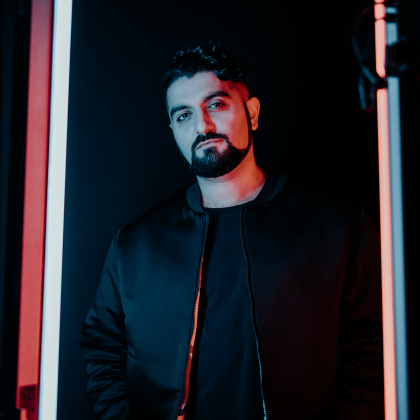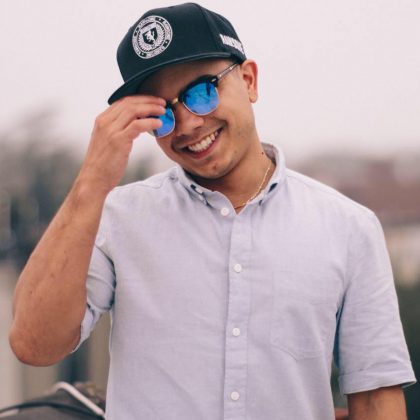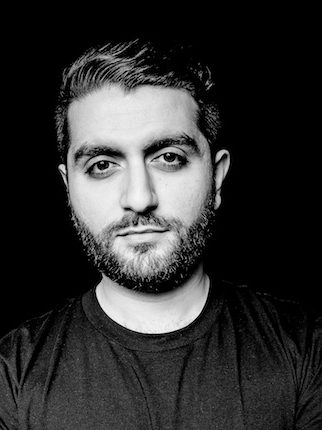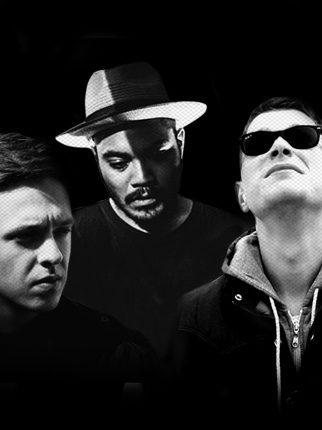From Baghdad to Australia: How Motez Found His Groove
Maybe the first time you heard of Motez was when he dropped his massive remix of Madison Avenue’s classic record “Don’t Call Me Baby.” Along with his contemporaries like Disclosure, Motez has helped bring the sexy back into house music. In doing so, he has reminded some and helped introduce others to the groovier side of electronic dance music. His onstage demeanor is as cool as his music—calm and composed. As he bops and grooves to every track, he oozes a kind of swag that comes only from years of experience. Or does it?
Motez has been producing since an early age in his home country, Iraq. Growing up in the midst of an oppressive regime and in a country that was constantly torn by war and turmoil, music provided an escape from the stress of everyday life. He spent most of his adult life there, and had it not been for a move to Adelaide, Australia, we might have never been blessed with his music.
“You can’t have artistic freedom in a country where on one hand, you have a dictatorship and on the other hand, there is no room for people to explore because everyone is busy with the basics of how to survive everyday life.”
I got the chance to sit down and talk to Tez about what it was like making music in Iraq and his fairly recent jump into club/rave life.
You grew up in Baghdad; were you into house music there?
No, not heaps, because we don’t have a clubbing scene—we don’t have clubs. If we had anything to do with dance music, it was purely electronic; so I grew up listening to a lot of electronic music, like Jean-Michel Jarre, Vangelis, Boards of Canada. Then I started getting into things like Jill Scott and Eryka Badhu.
Yeah, I read you had a background in soul and hip-hop.
I love soul. I love the old school, East Coast hip-hop—Bahamadia and that ilk. But then I moved on to what was kind of a good compromise in the house music world: 2-step garage. That’s why I felt like I liked the electro sort of sound. Then I took a quick hiatus and returned to my roots with the groovier stuff—real downtempo, real sexy. I think that’s what house music is about. It’s kind of moved a bit more into something a little bit darker, and I play that in my sets, particularly here in the US.
I don’t feel like house music really lends itself well to big stages; it’s kind of cozy, so it feels better in small venues. In a small- to medium-size venue, when it’s packed and everyone is in it, I can sort of vibe off that.
Did you get into house music after leaving Baghdad?
Sort of toward the end of me being back home, I did listen to a load of big beat, like Fatboy Slim, the Crystal Method, Leftfield. I’ve listened to so many different genres/subgenres. I listen to everything, pretty much—except for the new style of gangsta rap, and country music. I don’t really do theatre.
Was it difficult to get ahold of music there?
Absolutely.
How did you do that?
Back in Saddam’s era, it was pretty much a dictatorship, and the regime wasn’t open to things that challenged it. Boney M’s “Rivers of Babylon” was one of their most famous songs. It got released in Iraq, and everyone loved it. People were listening to it and vibing off it and blasting it out of record stores, but as soon the government realized what the lyrics were about, they banned it. Things like that—you can’t have artistic freedom in a country where on one hand, you have a dictatorship that deprives you of all kinds of intellectual freedom, and on the other hand, there is no room for people to explore these things because everyone is busy with the basics of how to survive everyday life.
Did you start producing while you were there, and what were you making?
Everything from trip-hop to, dare I say, trance.
Is all that stuff hiding away on a hard drive somewhere?
Yeah, somewhere… I think for me to express myself properly, the whole Motez project is good. Well, it’s not a project—it’s me. The sound reflects the self. This is what I love. This is what I love listening to, and I don’t need to have an alias to do that.
So, moving helped that surface?
Absolutely. The freedom to explore myself on a personal level, and a professional level, when you don’t have to worry about bombs exploding around the corner—the little things that people in the US or back home [in Australia] take for granted—you kind of have a little bit more appreciation for.
Let’s take a step back. What was the first event you attended as a raver or clubber? Who was playing?
It was actually recently. There is this New Zealand drum & bass band called Shapeshifter… They have a very soulful take on the genre. The lead singer, P Digsss, God bless him—I have a massive crush on him. He played the last time I was in Fiji, and I fangirled so hard; he’s one of only two people I have ever fangirled off of.
Who was the other one?
Armand Van Helden on Holy Ship!. There were a whole bunch of us that were standing in the artist area, and he walked in as a special guest and we were all like, “Oh my god!” And the guy is swag personified, he was wearing like leather shorts, massive sneakers—he’s just got so much swag. As the night wore on and we got more comfortable, I was with the Odesza guys and Snake Hips guys, and he walked past and we all bowed down. We had to, he’s a legend. And he looks amazing; he’s a good-looking guy.
Yeah, he’s a legend. He rarely plays in the US, so I still haven’t had the chance.
There was one day I woke up to him playing a set with Guy from Disclosure. What a great way to wake up and hear beautiful music.
So I hear you’re a java head? That’s my own personal term for someone who loves coffee. Who has the best coffee: Iraq, Australia or the US?
Java head? That’s new! I am really sorry, but not the US. Iraqi coffee is coffee taken to an extreme.
Is it like Turkish coffee?
Yes, just like Turkish coffee.
So it’s mud?
Yes, mud; it’s thick. It’s got heart and soul. It’s got guts. In Australia, I live in Adelaide, and it’s got great coffee places you find tucked away in alleyways. So I’d say Australia, because of the variety of coffee you get.
What are you listening to right now that isn’t electronic?
I keep going back to the latest album by Boards of Canada, called Tomorrow’s Harvest. Something that is electronic but is a lot more soul than electronic is “Willing and Able” by Disclosure. That song just exemplifies what I love about music. It’s the best song they’ve ever written. I can’t talk about it without wanting to listen to it.
You can catch Motez at EDC Orlando on Saturday, November 7.
Follow Motez on Facebook | Twitter






